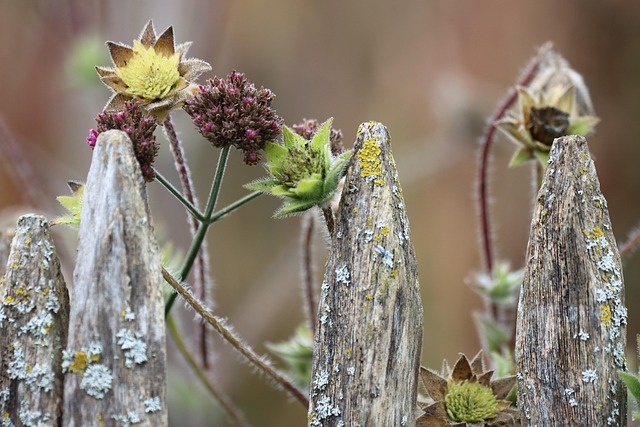Effective seasonal garden maintenance is key to a vibrant, resilient outdoor space. Spring begins with preparing plants through pruning and tailored fertilizers. Summer requires strategic watering techniques and fall cleanup removes dead matter for winter protection. Protecting plants during winter involves mulching, preserving soil health until spring. Integrating these seasonal practices, including fertilizing, pest control, and specific care in hot summers, ensures a thriving garden throughout the year, optimized for spring rebirth.
In the realm of seasonal garden maintenance, adjusting watering and care schedules is paramount to ensuring your plants thrive year-round. As the weather shifts from spring’s rebirth to summer’s heat, fall’s crispness, and winter’s chill, so too should your gardening practices. This article guides you through essential strategies for each season, including spring garden preparation, summer watering tips, fall cleanup, and winter protection. Discover how to fertilize effectively, implement mulching techniques for seasonal changes, and navigate pest control challenges uniquely suited to each phase of the year.
- Spring Garden Preparation: Setting the Stage for a Thriving Season
- Summer Watering Tips: Ensuring Your Plants Thrive During Hot Months
- Fall Cleanup Strategies: Preparing Your Garden for Winter Rest
- Winter Garden Protection and Pruning: Safeguarding Plants for the Cold Season
Spring Garden Preparation: Setting the Stage for a Thriving Season

As the seasons change, so do the needs of your garden. Spring garden preparation is a crucial step in setting the stage for a thriving season. Before the growing season begins, focus on tasks like pruning seasonal plants to encourage new growth and fertilizing according to the current season’s requirements. This initial setup ensures your garden has the nutrients it needs to flourish during spring and summer months.
In terms of watering, consider implementing summer watering tips early on to prevent over- or under-saturation. Similarly, fall cleanup strategies should be employed to remove dead plant matter and prepare for winter protection. Protecting your garden during winter involves steps like mulching to insulate plants from cold temperatures, ensuring the soil stays healthy until spring arrives. By integrating these seasonal practices, including fertilizing schedules tailored to each season and effective pest control measures, you’ll foster a vibrant and resilient outdoor space throughout the year.
Summer Watering Tips: Ensuring Your Plants Thrive During Hot Months

During the hot summer months, your plants need adequate water to thrive. However, overwatering can be just as harmful as underwatering. To maintain a healthy garden during this season, consider adjusting your watering schedule and employing specific strategies tailored for summer. Start by evaluating your plants’ water requirements; some may need more frequent but shallow watering, while others are better suited to deeper but less frequent irrigation.
Implementing effective summer watering tips includes using drip irrigation or soaker hoses to minimize water waste and ensure the water reaches the root zones directly. Additionally, consider mulching around your plants to reduce evaporation and maintain soil moisture. Remember, regular monitoring is key; check the soil’s dampness before watering, and adjust your schedule based on weather conditions and plant needs.
Fall Cleanup Strategies: Preparing Your Garden for Winter Rest

As the seasons change, so should your garden maintenance routine. Fall cleanup strategies are essential for preparing your garden for its winter rest, ensuring a healthy and vibrant rebirth in spring. Start by removing dead plant matter, weeds, and any remaining summer flowers to prevent pest and disease issues during the colder months. Prune seasonal plants, trimming back perennials and shrubs to maintain their shape and encourage new growth in the next season.
Implementing fertilizing schedules tailored to each season is crucial for maintaining a balanced ecosystem. In fall, opt for a slow-release fertilizer to provide sustained nutrients throughout winter. Additionally, mulching around plant bases offers insulation against extreme temperatures, conserves moisture, and prevents soil erosion during winter storms. These seasonal garden maintenance practices ensure your plants are well-prepared for the upcoming climate changes, promoting their longevity and beauty when spring returns.
Winter Garden Protection and Pruning: Safeguarding Plants for the Cold Season

Winter offers a unique set of challenges for gardeners, requiring specific strategies to protect plants from cold weather and ensure their health throughout the season. One crucial aspect is understanding that winter garden protection goes beyond simply hunkering down for the colder months; it involves active preparation and maintenance. Pruning becomes an essential tool in this process, helping to shape plants and remove any damaged or dead wood. By trimming back perennials and shrubs before winter sets in, you encourage new growth in spring and reduce the risk of pests and diseases.
This period is also ideal for implementing various fall cleanup strategies, such as removing dead plant matter and preparing beds with organic material like compost. Fertilizing schedules should be adjusted to cater to the changing needs of plants; a balanced winter fertilizer can help keep roots active and healthy. Additionally, mulching is a vital technique to insulate the soil and protect plants from freezing temperatures, ensuring they receive adequate moisture during dry winter spells. These steps form part of a comprehensive seasonal garden maintenance plan, contributing to the overall resilience of your garden through the winter months and into the following spring.
Adjusting your watering, pruning, and fertilizing schedules according to seasonal weather changes is crucial for maintaining a thriving garden year-round. By implementing the strategies discussed in this article—from spring preparation to fall cleanup, summer watering tips, and winter protection—you’ll create an environment where plants flourish during each season. Incorporate mulching and seasonal pest control measures to further safeguard your garden against environmental shifts. Remember, seasonal garden maintenance is not just about survival; it’s about fostering a vibrant, diverse ecosystem that reflects the beauty of nature’s ever-changing landscape.
